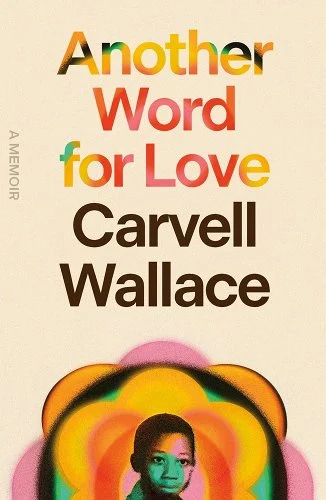Review: Another Word for Love by Carvell Wallace
Love and its infinities in memoir form.
“Sometimes you lose people you love — even if those people are you.”
Carvell Wallace
A generation ago almost, there was a cultural obsession, or something like it, over memoir.
Not just a standard fascinating life story with tragedy and maybe addiction and recovery and resilience, but some kind of layered intersection of traumas and healing or redemption. I learned this because as a young writer who hadn’t yet learned to shield and protect my gift from unsolicited advice about what or how I should write, people often heard my path to writing and reading and said, “You should write your story down.” And because I am a literal literary person, I did.
I started where I think most people who aspire to be memoirists start, by writing my life story in chronological order. (My favorite version of this was the way that Serena and Venus Williams’ dad, Richard Williams, began his memoir, by starting in the womb. I didn’t go quite that far back.) The universal response to the drafts I shared with editors was that this was boring, mostly because I was not and I am not still, a celebrity.
So then I was like, "Oh! I need…a theme.” But how do you make thematic material from poverty then marginally making it, to becoming middle class as a Black woman in America? As much of a real miracle as that really is, so are a lot of ways that people who are meant to perish make it in the world. Still, this is writing — trying to write what’s in you that is yours to write even if you have no idea what you’re actually doing. I wrote it according to wack themes like running or stray cats. Those old drafts were the old people that I would eventually lose, as Carvell Wallace writes in one of the many beautiful passages in Another Word for Love: A Memoir.
Then my parents died. My father first, my mother soon after. My story, the self-published memoir, The Beautiful Darkness: A Handbook for Orphans was a burning tome I needed out of me to move on and to become the adult orphan who had also kind of been a child orphan but also not really.
What I learned over the course of 20 years trying and failing and being rejected and then self-publishing is that Maya Angelou made memoir look easy and it is not. What you need for a beautiful and powerful memoir is a litany of experience, a humbled and wise perspective and an understanding of the thematic soul ties that bind us all.
These are the qualities of Another Word for Love by Carvell Wallace whose prose grabbed me and would not let go. Wallace is a journalist who writes with a unique combination of distance and specificity about his journey to loving himself and others. Rare to see Black men love in public or tell about how they love in private without centering their pain.
I love that in the language of therapy, he uses I language, that he doesn’t try to tell anyone what other people were feeling and he does not make excuses for his mistakes, but rather he lays bare his triumphs - which we celebrate with him — and his failures, which made this reader respect his honesty and his loyalty to himself, and his commitment to real, genuine love.
I found myself highlighting whole paragraphs in my Kindle app because I could relate so hard to so many of his sentiments, like this: “…I don’t want to write about the people who have hurt me. They are among the dying. You are among the dying. To be among the dying, and to know it, the feeling that gives you, that is another word for love.”
Noticing beauty in nature, and within ourselves, is another synonym for love, and I was once a failed gardener, so this struck me, too: “Whenever you see a clump of daffodils standing alone in a field, it is a sign that someone once tried to make something beautiful there.” I can say with total admiration and truth that Carvell Wallace’s memoir is like that clump of daffodils, except that it is much more than that, it is an entire field of beautiful flowers where he has made beauty that cannot and should not be denied.



Love the line about he daffodils - goodness!
I just reread "The Mother" because I saw a cluster of daffodils blooming today. The flowers immediately made me think of this memoir.